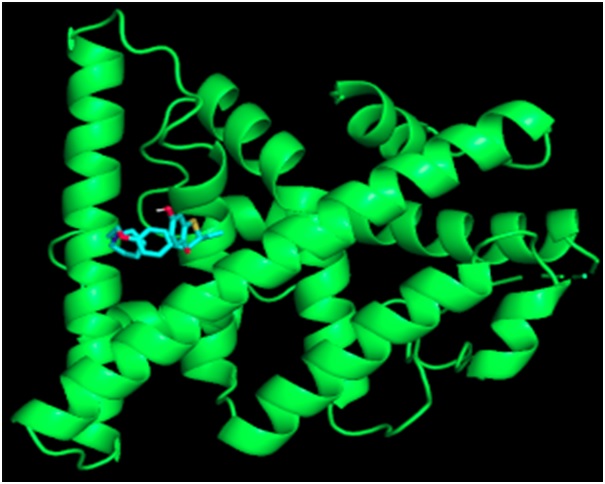
MMUST scientists led by Dr. Patrick Okoth from the Department of Biological Sciences, Dr. Clabe Wekesa from the Max Plank Institute of Chemical Ecology, in Jena, Germany, and Edwin Mwakio from the Department of Biological Sciences, have innovated MLDockKit, which is a machine learning- based toolkit designed for computing Lipinski descriptors. This is a major milestone in the fight against prostate cancer, as MLDockKit anticipates fueling breakthroughs in Prostate Cancer Research and Drug Discovery.
MLDockKit is capable of measuring drug likeliness, and drug potency, and enables the understanding of protein-drug interactions at the atomic level, to target estrogen alpha receptor protein, whose presence promotes proliferation, inflammation, and migration of cancerous cells. It is an innovative software engineered to revolutionize targeted prostate cancer therapies through in silico science.
Early diagnosis of Prostate Cancer facilitates swift and effective treatment. Managing prostate cancer is challenging due to the need to restrict tumor growth and prevent metastasis. Significant efforts have been dedicated to finding new prostate cancer therapies, resulting in promising advancements. Pharmacological strategies aim to improve PC treatment while minimizing the adverse effects of drugs. However, resistance often develops, leading to castration-resistant forms of prostate cancer due to androgen receptor reactivation, mutations, or signaling pathway disruptions. The discovery of the role of the estradiol/estradiol receptor (ER) axis in controlling PC growth and progression offered a promising approach to restrain growth and spread of prostate cancer cells by targeting specific ER subtypes (α or β). Extensive research has put the Estrogen Receptor Alpha (ERα) as an attractive candidate for PC therapeutic intervention.
According to the World Health Organization (WHO), Cancer arises from the transformation of normal cells into tumor cells in a multi-stage process that generally progresses from a pre-cancerous lesion to a malignant tumor. These changes are the result of the interaction between a person's genetic factors and three categories of external agents, including physical carcinogens, such as ultraviolet and ionizing radiation; chemical carcinogens, such as asbestos, components of tobacco smoke, alcohol, aflatoxin (a food contaminant), and arsenic (a drinking water contaminant); and biological carcinogens, such as infections from certain viruses, bacteria, or parasites.
In the year 2020 WHO rated Cancer as the leading cause of death worldwide, accounting for nearly 10 million deaths, with prostate cancer contributing 1.41 million cases. As such, this innovation comes in handy in boosting the fight against prostate cancer.
https://pypi.org/project/





